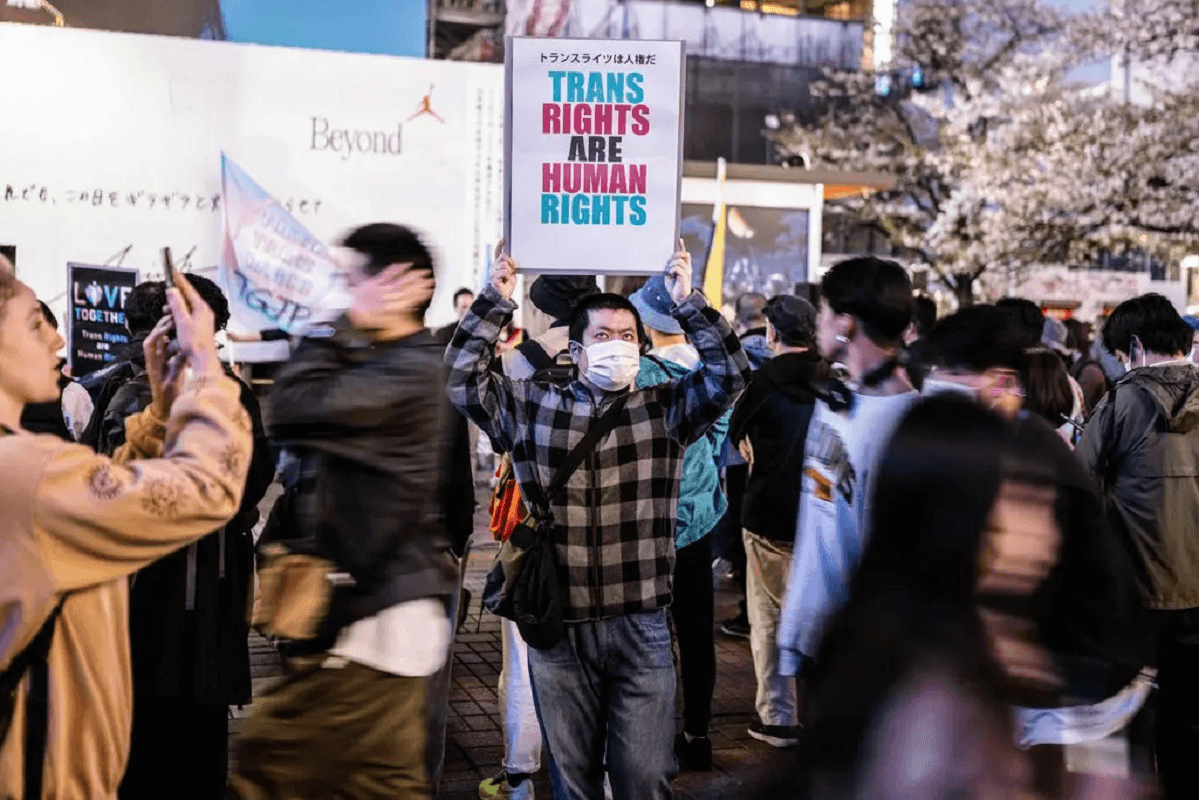Transitional Rule for Transgenders in Japan
Marzana Mahnaz | 02 November 2023
The percentage of the total transgender population around the world is 0.7% although the issue of it comes into discussion regularly in recent times and the existence of the transgender community existed way before the mainstream discussion in the new era. Gender issues and identities are a very sensitive topic and were hushed up until the beginning of the pride movement. Although the times and circumstances have changed for the betterment of the transgender community, this gender spectrum group still faces hurdles from society and the bureaucratic aspects as well. The legal procedures for being transgender are still a complex situation in most countries.
The generalization regarding the members of the transgender community is that the gender dysphoria they experience is caused by mental illness. The popular belief of primitive-minded people is that it is the mental illness that makes them trans. In reality, most people from the trans community develop mental illnesses like depression, and anxiety because of how they are treated in society for their gender identity disorder. This kind of isolation not only impacts the mental health of transgender people but also hinders their way of meeting their human rights. The perfect example of these would be, in the early 2000s the Japanese transgender community was more inclined to identify their state as a “disability” than a “disorder”. The fear of social ostracization influenced the community to identify the state as a gender identity disability in the case of advocating their human rights, being in a Japanese disabled community has helped them more than the LGB Japanese community.
Japan crafted a law in 2003 named the Gender Identity Disorder (GID) Special Cases Act for the community who wants to change their assigned gender identity by birth. The GID Act came into motion in 2004. At first glance, an act regarding the gender transition may look like a step forward to ensure the rights of the transgender community and their inclusion in the legal sphere. But if we dig deeper into the rules under this act, the perspective becomes one step forward and two steps backward. The requirements under the GID Act are prerogative and harmful. It denies the physical and mental well-being of the people concerned with the transition including undergoing surgery to remove all the reproductive glands and make them barren for life. The requirement to be sterilized snatches the freedom of transgender people to have a family and violates their right to privacy.
However, in October 2023, Japan’s Supreme Court ruled the country’s law mandating sterilization surgery for transgender people as a requirement for legal gender recognition as unconstitutional. UN experts and the World Professional Association for Transgender Health have both urged Japan to eliminate the law’s discriminatory elements in the past. Upon the urge and pressure from the outside Japan pledged to revise the law. Apart from the nudging from the UN, a transgender man named Gen Suzuki filed a court request to have his legal gender recognized as male without undergoing sterilization surgery as prescribed by national law in 2021. After two years of filing the case, the Shizuoka Family Court finally ruled in his favor in October 2023, with the judge writing: “Surgery to remove the gonads has the serious and irreversible result of loss of reproductive function. I cannot help but question whether being forced to undergo such treatment lacks necessity or rationality, considering the level of social confusion it may cause and from a medical perspective.”Subsequently a week later of Shizuoka Family Court’s writing, on 25 October 2023, Japan’s Supreme Court ruled the country’s law mandating sterilization surgery for transgender people as a requirement for legal gender recognition as unconstitutional.
Another requirement under the GID Act for gender transition includes that the person needs to have “genitalia that closely resembles the physical form of an alternative gender” which is equally regressive and frustrating as the sterilization surgery. This requirement adds more stress to the people who are already suffering from stigmatization from society and unable to embrace their true selves. The recent court ruling ignited another step toward the victory for transgender people in Japan. While the Supreme Court has ruled against the sterilization requirement, it has asked a lower court to review the resemblance criteria.
The world is everchanging. It is not the same as it was 20 years ago and it won’t be the same 20 years after. Over time, the policies, laws, and regulations regarding gender identities and their legalities should be flexible for the sake of those who face immense stigma, stereotypes, and physical tolls just to be the person they feel within. And about the process of flexibilization, Japan has forwarded two steps at once than its past history of going one step forward and two steps backward.
Marzana Mahnaz, Research Assistant, Centre for Governance Studies.
Views in this article are author’s own and do not necessarily reflect CGS policy.
